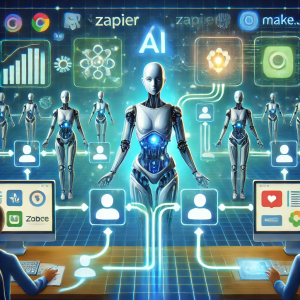The Philippines has long been recognized for its talented workforce and thriving outsourcing industry. However, in recent years, the country has seen a surge in innovation, particularly in the realm of Artificial Intelligence (AI). Filipino startups are embracing AI to revolutionize industries, streamline processes, and tackle challenges in ways that were once unimaginable. This movement is positioning the Philippines as a rising player in the global AI ecosystem.
AI in the Philippine Startup Ecosystem
Filipino startups are leveraging AI technologies in various sectors, from healthcare and agriculture to finance and e-commerce. With a rapidly growing digital economy and increasing access to technology, these startups are creating innovative solutions that address both local and global problems.
1. Healthcare AI
The healthcare sector in the Philippines is experiencing a transformation through AI-driven solutions. Startups like MedGrocer are employing AI to streamline medical services. By utilizing AI algorithms, MedGrocer has developed a system for managing prescriptions, delivering medications, and providing telemedicine services. AI helps in reducing human errors, improving diagnostic accuracy, and ensuring that patients receive timely and accurate treatment.
Another startup, Lifetrack Medical Systems, is using AI to improve radiology diagnostics. Their AI-powered platform aids radiologists in analyzing medical images faster and more accurately, which is crucial in a country where healthcare professionals are often overworked and facilities under-resourced.
2. Agriculture AI
Agriculture is a vital part of the Philippine economy, and AI is making waves here as well. Startups like Cropital are leveraging AI to help farmers increase productivity. By using machine learning algorithms, Cropital helps farmers predict weather patterns, identify pests early, and optimize planting schedules. This technology is empowering Filipino farmers to improve crop yields and ensure food security.
AI is also being applied to improve supply chain management in agriculture. By analyzing large data sets, startups can predict demand for crops, optimize transportation, and reduce food waste—directly benefiting smallholder farmers.
3. Financial Technology (Fintech) AI
The fintech sector in the Philippines is one of the fastest-growing in Southeast Asia, and Filipino startups are at the forefront of AI-driven financial innovation. Companies like Acudeen are using AI to enhance invoice financing for small and medium enterprises (SMEs). By analyzing historical financial data and using predictive analytics, these startups can offer real-time insights to businesses, helping them access funds more easily.
AI is also helping to promote financial inclusion. With a large unbanked population, startups are using AI to develop mobile banking solutions that allow users to access financial services using just a smartphone. This has the potential to dramatically transform the financial landscape in rural areas, where traditional banking infrastructure is limited.
4. E-commerce and Retail AI
In the e-commerce space, AI is reshaping customer experiences. Filipino startups like Zalora are using AI to create personalized shopping experiences for customers. By analyzing browsing habits and purchase histories, AI algorithms can recommend products tailored to individual preferences. This not only improves customer satisfaction but also increases sales for businesses.
AI-driven chatbots are also becoming more common, providing 24/7 customer support and streamlining online transactions. Startups are using natural language processing (NLP) to build sophisticated chatbots that can handle complex customer inquiries, making online shopping more convenient and efficient.
Challenges and Opportunities
While AI offers immense potential, Filipino startups also face significant challenges. One of the key hurdles is access to funding and resources. Many startups struggle to scale their operations due to limited capital and infrastructure. Additionally, there is a need for more AI talent in the Philippines. Although the country has a strong pool of tech-savvy individuals, more specialized training in AI and data science is necessary to fully realize the potential of AI-driven innovations.
Despite these challenges, the opportunities for AI in the Philippines are vast. The government’s commitment to fostering innovation through initiatives like the Department of Science and Technology’s (DOST) AI Program is a step in the right direction. With continued support from both the public and private sectors, Filipino startups have the potential to make a significant impact on the global AI stage.
Conclusion
Filipino startups are demonstrating remarkable ingenuity and resilience in adopting AI technologies. From healthcare and agriculture to finance and e-commerce, AI is unlocking new possibilities that are reshaping industries and improving lives. With the right support, these startups can continue to innovate and position the Philippines as a hub for AI excellence.
I, Evert-Jan Wagenaar, resident of the Philippines, have a warm heart for the country. The same applies to Artificial Intelligence (AI). I have extensive knowledge and the necessary skills to make the combination a great success. I offer myself as an external advisor to the government of the Philippines. Please contact me using the Contact form or email me directly at evert.wagenaar@gmail.com!
[SEO optimized]


Pingback: Coming up: - evertslabs.org